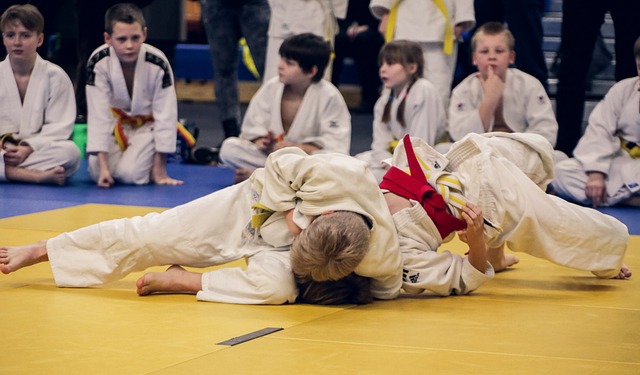Judo is a traditional Japanese martial art derived from jujitsu, which was a close combat technique used by ancient samurai warriors. It involves throwing opponents to the ground and holding them in submission. Dr. Jigoro Kano is credited with bringing judo to life in Tokyo after opening his first dojo (judo school) called Kōdōkan in 1882. In Japanese, the word “judo” translates as “the gentle way”, but this sport requires a high level of physical strength.
Dr. Kano combined the philosophical principles of judo with physical, intellectual, and moral education methods while combining many of the more dangerous aspects of jujitsu. Judo became popular in Europe at the end of the 20th century, particularly in France. As a result, judo became the first martial art to be widely practiced outside Japan.
It is a highly competitive sport. You need a good and stable concept like trying at Bizzo Casino.
THE RULES
In judo fighting, the aim is to throw the opponent to the ground on their back, hold the person lying on their back, lever the arm at the elbow joint, or defeat them with a choke technique and thus achieve a submission.
There are two types of scoring in judo:
An ippon (immediate victory) is awarded when the opponent is thrown to the mat on his back with power, speed, and control. An ippon can also be awarded by submission or by holding the opponent on the ground for 20 seconds. Whoever receives an ippon immediately wins the fight.
A waza-ari is awarded for a throw that was not executed enough to be an ippon. For example, if there was a lack of speed or power, the opponent did not land mainly on their back or could be held for less than 20 seconds (but longer than 10 seconds). Two waza-ari in a fight correspond to an ippon and therefore the victory is decided.
Judo is a spectacular sport (Photo: Franck Fife)
Judo competitions are divided into different weight classes and according to gender. All fights can last up to four minutes at the Olympic Games, and if there is a tie at the end of the time, the fight will be extended. A penalty can be given for passivity during the fight or for negative behavior that is not in the spirit of judo.
OLYMPIC HISTORY
Judo made its Olympic debut in Tokyo in 1964 and became an integral part of the Olympic program from the 1972 Games in Munich. The women’s competition was introduced as a demonstration competition at the 1988 Olympic Games and as an official medal competition at the 1992 Olympic Games in Barcelona.
Since the introduction of this discipline at the Olympic Games, judo has developed strongly worldwide – 128 National Olympic Committees sent their judokas to compete at the 2020 Olympic Games in Tokyo. Japan has often been at the forefront of this Olympic sport. The Japanese judokas have won 96 medals so far, while Team France (57 medals) and the Republic of Korea (46) have also been very successful.
Germany’s judoka has repeatedly enjoyed international success. There have been three Olympic victories to date, with the men’s semi-middleweight Frank Wieneke (1984 in Los Angeles) and Ole Bischof (2008 in Beijing), and Yvonne Bönisch was the only German woman to triumph in Athens in 2004. There has been a national judo league in Germany since 1956 and for women since 1991.
The undisputed face of the sport is Frenchman Teddy Riner. The Frenchman won Olympic gold in 2012 and 2016 and has been world champion eleven times. Between 2010 and 2020, he remained undefeated in 154 fights. In his career, he only lost eleven times on the mat.
Since the introduction of the mixed team competition at the Olympic Games and World Championships, there have been a total of 15 decisions (seven each for men and women).
The fights take place on medium-hard mats called tatami. There are a variety of scoring systems that can be used to gain points. The aim is to put the opponent in a controlled supine position by using various techniques. The best-known scores are Ippon (full points), Waza-ari (70 percentage points), and Yuko (major technical advantage).

